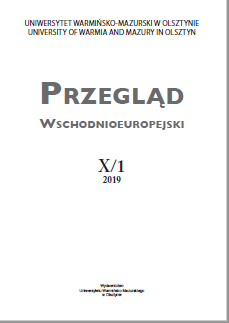POLITYKA NARODOWOŚCIOWA I KOLONIALNA ZWIĄZKU RADZIECKIEGO W UJĘCIU
HISTORIOGRAFII AMERYKAŃSKIEJ
NATIONALITY AND COLONIAL POLICIES OF THE SOVIET UNION IN U.S. HISTORIOGRAPHY
Author(s): Piotr PuchalskiSubject(s): Political history, Government/Political systems, International relations/trade, Evaluation research, Nationalism Studies, History of Communism
Published by: Wydawnictwo Uniwersytetu Warmińsko-Mazurskiego w Olsztynie
Keywords: USSR; USA; nationality policy; colonialism; historiography;
Summary/Abstract: Changes in American interpretations of Soviet nationality policies have reflected broader shifts in U.S. historiography of the former U.S.S.R. Notwithstanding pro-Soviet apologists, U.S. scholars initially viewed the Soviet expansion into neighboring non-Russian lands as forced and integral to the emergence of the Soviet “party-state.” In effect, the Soviet rule, in particular outside of ethnic Russia, was perceived as brutal and often colonial in nature. The fall of the Soviet empire and resulting political relaxation, however, presented a turning point for the field, ushering in the so-called “archival revolution.” Consequently, the topic literature increasingly interpreted Soviet policies no longer as necessarily colonial but instead responsible for generating modern nationalities, or at least national categories.
Journal: Przegląd Wschodnioeuropejski
- Issue Year: X/2019
- Issue No: 1
- Page Range: 103-114
- Page Count: 12
- Language: Polish

